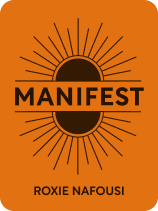

This article is an excerpt from the Shortform book guide to "Manifest" by Roxie Nafousi. Shortform has the world's best summaries and analyses of books you should be reading.
Like this article? Sign up for a free trial here.
What does it mean to love yourself? How do you cultivate self-love?
To love yourself is to believe that you’re worthy and capable of achieving anything you want in life. When you truly love yourself, you act in your best interests, no matter how hard it is, and in return, the Universe gives you what you want.
Here’s what it means to love yourself, and some tips on how to develop self-love.
What Does It Mean to Love Yourself?
Loving yourself requires you to act in your best interest, overcome negative self-perceptions, forgive yourself for flaws and mistakes, and fully embrace who you are. Loving yourself is the most vital ingredient of successful manifestation because it fosters the belief that you can accomplish, and deserve, all your desires in life. This belief combats all forms of negativity, such as the fear of failure or self-doubt. If you don’t love yourself, these negative thoughts, behaviors, and perspectives will lower your vibration and hinder your progress toward positive manifestation.
| What Is Self-Love and Why Is It Important? In The Gifts of Imperfection, Brené Brown reiterates the importance of acting in your best interest, overcoming negative self-perceptions, forgiving yourself for flaws and mistakes, and fully embracing who you are. However, while Nafousi refers to this concept as “practicing self-love,” Brown refers to it as practicing worthiness. Further, Brown explains that there are three values you must practice to cultivate worthiness: – Ordinary courage is the ability to express your authentic self, feelings, and experiences without feeling ashamed (fully embrace who you are and overcome negative self-perceptions). – Compassion is the ability to use bravery, vulnerability, and acceptance to be kind to yourself and others (act in your best interest and forgive yourself for flaws and mistakes). – Connection is building meaningful and fulfilling relationships with others. While Nafousi argues that self-love helps you achieve success and fulfillment in life by boosting your ability to manifest, Brown argues that practicing worthiness breeds success and happiness because it helps you overcome feelings of shame. Brown elaborates that shame is the ultimate foil to living a happy, fulfilling life because it thrives on and encourages fear, self-hatred, and the feeling that you’re not “enough,” and you can’t flourish in these conditions. Similarly, Nafousi might assert that it would be nearly impossible to manifest with these negative thoughts and emotions present in your life. |
How to Cultivate Love for Yourself
Nafousi gives two pieces of advice on how to develop self-love:
First, be conscious of your actions and their impacts. Pay attention to the choices you’re making in life and whether those choices are in your best interest. If they’re continually causing you distress or unhappiness, or they’re hindering your progress toward your goals, identify what you can do instead to cultivate more positivity—show yourself love by doing what’s best for you. For example, if you realize that hanging out with a certain friend always makes you feel grouchy, acknowledge that this friend might not be a good match.
(Shortfom note: In The Mountain Is You, Brianna Wiest explains that becoming conscious of your self-sabotaging actions—those that work against your best interest—is especially difficult because they tend to be subconscious behaviors. To help identify self-sabotaging behaviors that are possibly slipping under your radar, Wiest recommends first identifying everything in your life that you’re unhappy with or want to change. Then, create a list of the behaviors that are perpetuating that unhappiness or preventing you from making those changes—these are the self-sabotaging behaviors you must overcome to achieve your ideal life and achieve happiness.)
Second, accept your current state. Each day, acknowledge how you’re doing—mentally, physically, and emotionally—and do what you can to help yourself if you’re not feeling great. If this means staying in bed and drinking tea all day, then do so. If this means forcing yourself out of bed and going on a run to clear your mind, then do that. Loving yourself means caring for yourself in whatever way you need right now.
If you push yourself to do too much when you’re not feeling good, you’ll self-criticize and feel guilty when you inevitably run out of energy and can’t achieve what you want. This will only attract negativity into your life.
(Shortform note: In Codependent No More, Melody Beattie reiterates the importance of being attentive to your inner state and giving yourself the grace and care you need, and she refers to this concept as self-care. However, Beattie warns that people sometimes abuse “self-care” and use it as an excuse to work against their best interests or neglect responsibilities. For example, skipping work to sleep in because you were tired isn’t an appropriate way to practice Nafousi and Beattie’s recommendation—it’s an excuse to neglect your responsibilities. While it’s important not to push yourself too hard and burn yourself out, as Nafousi explains, you must also differentiate needs (like resting when you’re ill) from wants (like sleeping in).

———End of Preview———
Like what you just read? Read the rest of the world's best book summary and analysis of Roxie Nafousi's "Manifest" at Shortform.
Here's what you'll find in our full Manifest summary:
- How to create your dream life through the power of thought
- Why manifestation is not just about picturing something you desire
- How to effectively manifest by altering your thoughts, behaviors, and emotions






